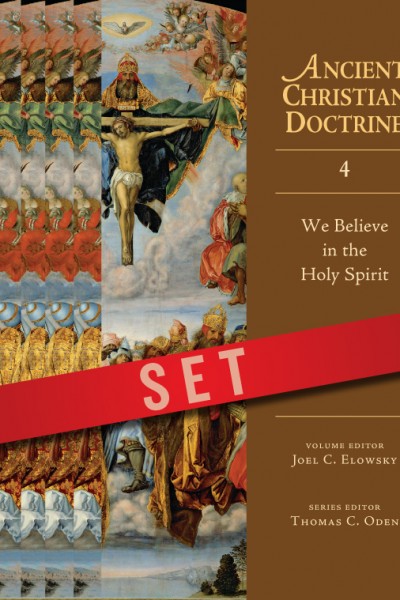Systematic Theology Survey For Mac
- Paypal Money Adder No Survey For Mac
- Systematic Theology Survey For Macarthur
- Systematic Theology Grudem Free Pdf
Start studying Exam 1 Survey to Theology - Systematic Theology Grudem. Learn vocabulary, terms, and more with flashcards, games, and other study tools. ST 501: Systematic Theology Survey for MAC Michael Allen Note: This survey course is open only to students who have been admitted to the MA in Counseling. This definitive analysis of the theology of Martin Luther surveys its development during the crises of Luther’s life, then offers a systematic survey by topics. Containing a wealth of quotations from less-known writings by Luther and written in a way that will interest both scholar. ST 501: Systematic Theology Survey for MAC Michael Allen Note: This survey course is open only to students who have been admitted to the MA in Counseling. After Tuesday’s post about why study systematic theology, I thought it might be helpful to explore what systematic theologies are worth using. In the last few years a number of significant systematic textbooks have been released as well as a host of stand alone volumes on different topics with in systematic theology.
Wayne Grudem explains it, “systematic theology is any study that answers the question, ‘What does the whole Bible teach us today?’ about any given topic.” This highly organized, topical approach to exploring Scripture is so important that most seminaries require at least one systematic theology course in their degree programs (sometimes called “doctrines” courses). Many of these courses utilize Grudem’s work. We’ve adapted this post from Dr. Wayne Grudem’s to help answer the question “what is systematic theology, and why should I care?”. By submitting your email address, you understand that you will receive email communications from HarperCollins Christian Publishing (501 Nelson Place, Nashville, TN 37214 USA) providing information about products and services of HCCP and its affiliates.
You may unsubscribe from these email communications at any time. If you have any questions, please review our or email us at. Let’s begin by looking at what sets systematic theology apart from other ways to study the Bible and form theological beliefs. Systematic theology is different from: Historical theology studies how Christians have understood various theological topics throughout history. This informs us of the insights and mistakes others have made studying Scripture over the centuries. While systematic theology sometimes draws from this historical information, it uses other sources as well. Philosophical theology Philosophical theology studies theological topics largely without use of the Bible.
It uses the tools and methods of philosophical reasoning, and attempts to discern what can be known about God from observing the universe. This can help us understand right and wrong thought forms in our culture and others. Again, systematic theology sometimes draws from this information, but philosophical theology doesn’t provide a holistic understanding of theological topics.
Click a mistake to get a list of correction suggestions. Arabic spellcheck on mac. How you can Utilize Online Spell Checker for Arabic - العربية. An outside window will appear displaying the wording along with errors currently underlined in red. Copy and paste the required wording to the text form above, then click the appropriate button.
Apologetics Apologetics defends the validity of the Christian faith, directly addressing objections to the Bible and Christianity. This helps us connect our topical exploration of Scripture to evangelism, and overcome the specific barriers that an unorganized understanding of Scripture can create. Ethics While Systematic theology emphasizes what God wants us to believe and know, Christian ethics emphasizes what God wants us to do—and what attitudes he wants us to have.
• For Mac OS X Sierra (version 10.12) • For Mac OS X El Capitan (version 10.11) • For Mac OS X Yosemite (version 10.10) • For Mac OS X Mavericks (version 10.9) • For PL2303 H/HX/HXD/EA/RA/SA/TA/TB chip versions • For Prolific USB VID_067B&PID_2303 Only • Includes Driver Installation Manual NOTE: Mac OS High Sierra 10.13 introduces a new feature that requires user approval before loading new third-party kernel extensions. PL2303 Mac OS X Driver Download Download File: Mac OS X Universal Binary Driver v1.6.1 (PKG file format) • For Mac OS High Sierra (version 10.13) - see NOTE below. Usb serial driver for mac.
Paypal Money Adder No Survey For Mac
Learn more in Wayne Grudem’s. Systematic theology vs. Biblical theology gives special attention to the teachings of individual authors and sections of Scripture, and frames each teaching within the historical development of Scripture. It answers questions like, “How does the teaching about prayer develop over the history of the Old Testament and then the New Testament?” These questions come close to the questions that systematic theology answers, like, “What does the whole Bible teach us today about prayer?” These disciplines often overlap at the edges, and parts of one study blend into the next. But there’s still an important difference: biblical theology traces the historical development of a doctrine, so your understanding of that particular doctrine changes as the historical setting progresses. Biblical theology also focuses on how the biblical authors and their original audience understood each doctrine. Systematic theology makes use of biblical theology and often builds on its results.
Systematic Theology Survey For Macarthur

Systematic Theology Grudem Free Pdf
At some points, especially where great detail and care is needed in the development of a doctrine, systematic theology will even use the same methods as biblical theology, analyzing the development of each doctrine through the historical development of Scripture. Dragon ball fighterz pc. But the focus of systematic theology remains different: it focuses on the collection and summary of all biblical passages on a subject, and attempts to summarize the teachings of Scripture in brief, understandable, and carefully formulated statements.